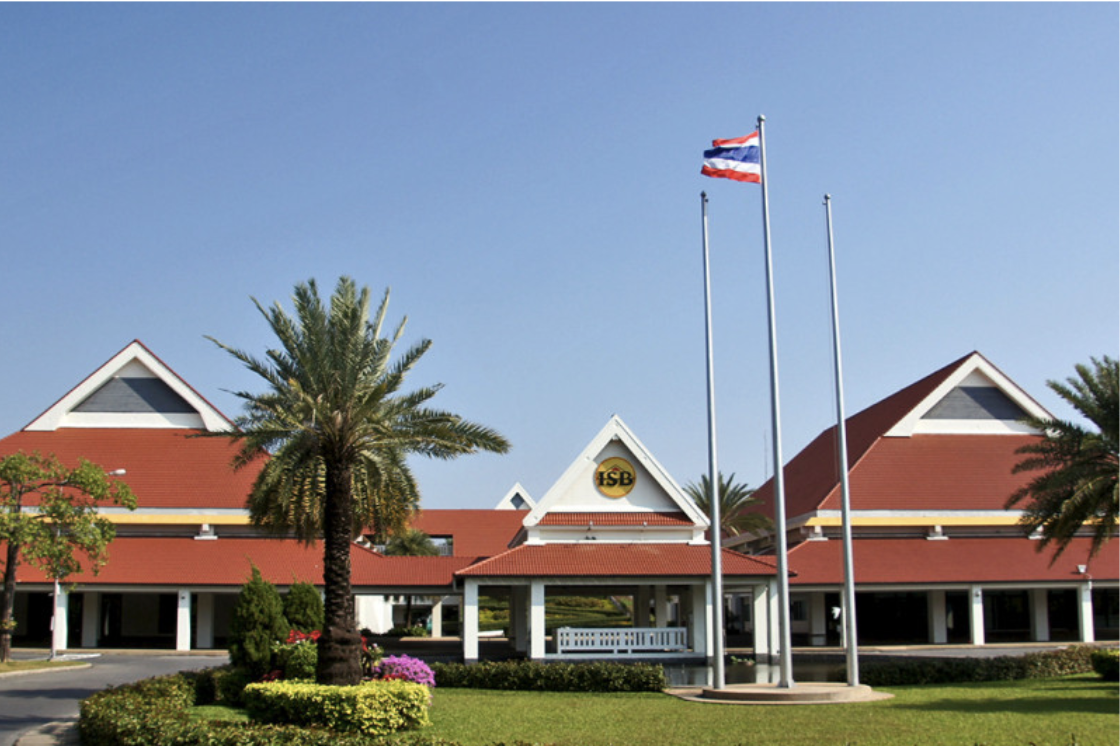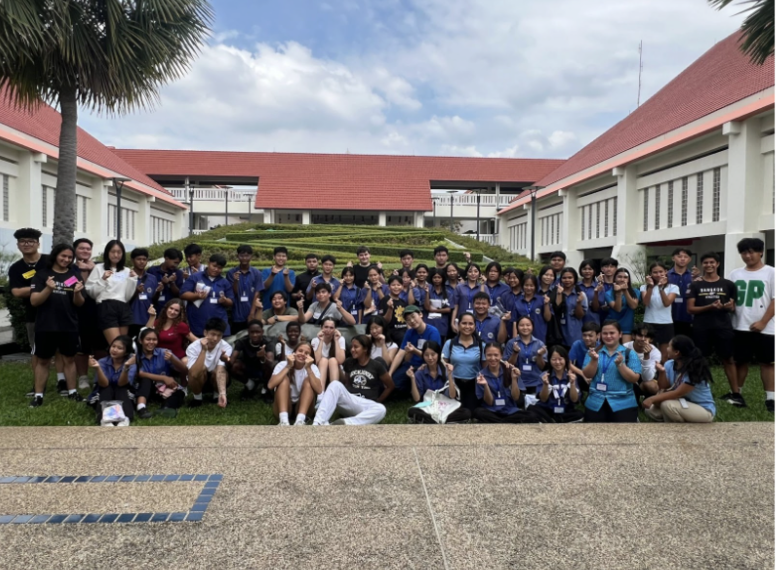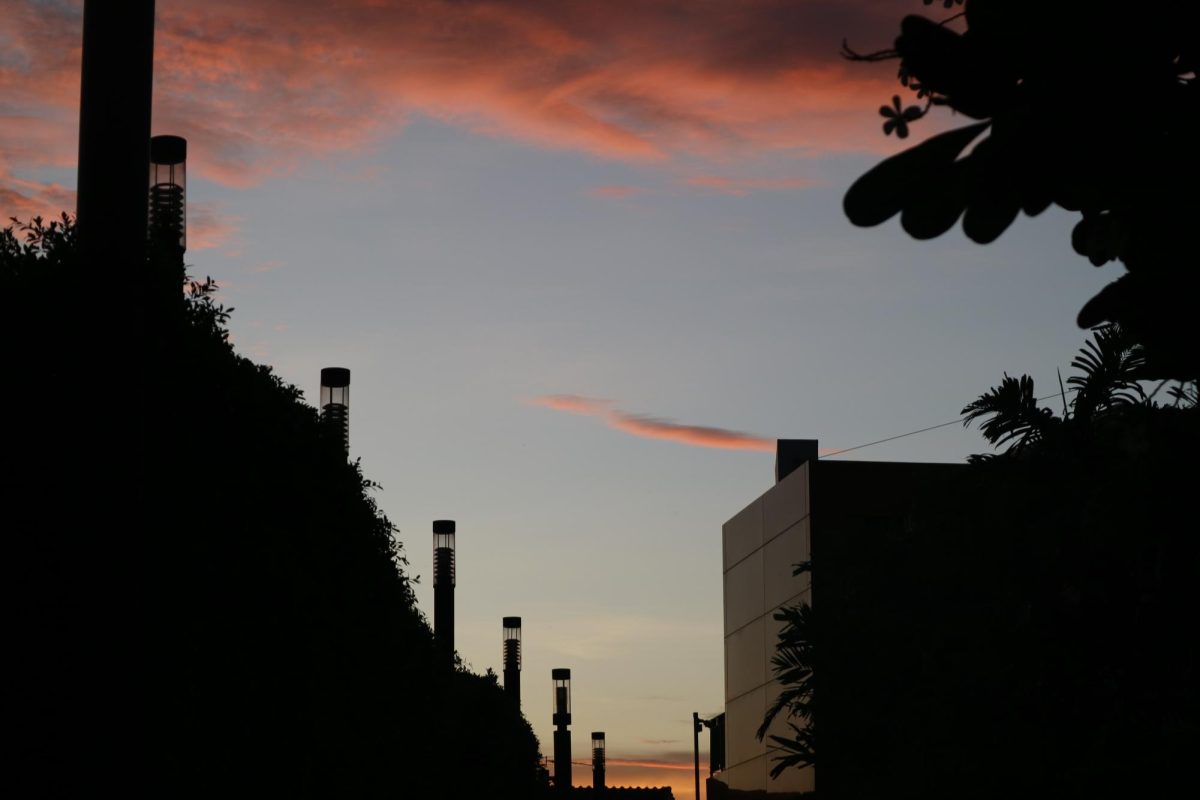ISB supports cycling to school in a safe and respectful manner and advocates for the associated benefits by offering students accessibility to bike. Although air quality is harmful to Thailand residents, biking also provides an outlet for positive physical and mental wellbeing, is environmentally friendly, improves the economy and provides jobs.

“We encourage students, staff and parents to commute to school by bicycle where possible. Along with this we also want to make sure riders are doing this in the safest way,” wrote Mark Hevland, ISB’s Head of Risk Management in a recent safety update. ISB also emphasizes making bikes as safe as possible by heeding caution. Bikers without a helmet are not allowed to access campus unless they get off their bikes and walk them in. Nichada guards keep bikers safe at every crosswalk.
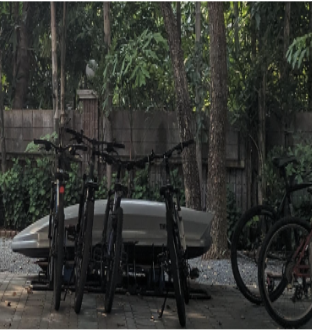
And ISB’s support of cycling doesn’t stop at our own campus. The school also helps children in need to access education. In 2022, ISB collected 168 donated bikes on behalf of iCare and gave them to children in Northern Thailand who were previously walking between 2 and 8 kilometers to and from school. By helping iCare, ISB is spreading awareness about the impact bikes can have to provide both mobility and clean transport. ISB’s Cycling Club has also collaborated with iCare to organize this event. If interested in biking, the Cycling Club meets Tuesdays after school in David Giles’ room (3-308), according to the CAS website. “Cycling club aims to provide service to local communities through cycling, educate people on cycling responsibly and host fun events to promote cycling as an activity and competitive sport,” its club description reads.
Sophomore Cody Riechert bikes to and from school regularly. “Normally I just take the bike because it’s faster than the car,” he says. “I ride outside to get some exercise.” He also uses biking as a way to process and destress. “I normally just think about things and take in the surroundings when I bike to school.” He also thoughtfully bikes as a nod to his parents’ time and convenience. “I have robotics after school everyday, and … having the bike here really helps with me being able to get to and from school like whenever I want. Also I don’t have to wait on my parents or driver to get to and from school. I can pick something up from a friend’s house that we forgot to bring to robotics one day.”
But biking isn’t always an option for students with extracurriculars. Even Cody sometimes rides to school with his dad in the car if he’s “carrying too much stuff.” The annual average air quality deemed safe is under 10μg/m3, according to WHO guidelines. Thailand’s national average is 64μg/m3, which is more than six times more harmful than “fresh” air, according to Breathe Safe Air. In Thailand, life expectancy has decreased by about two years because of pollution, which causes organ damage. It also has mental impacts and is correlated with higher depression and suicide risk. But Cody has experienced worse, having lived in Vietnam. “I’m not worried about air pollution,” he says. It is safer for students who have conditions that make them more sensitive to air pollution to ride in a ventilated car rather than be exposed to harmful pollutants on a bike.
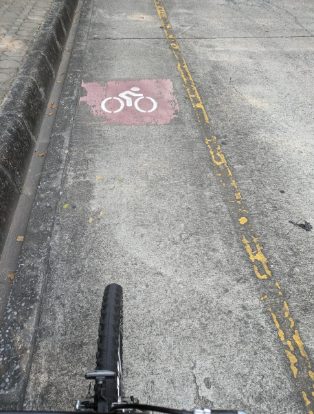
Another benefit of cycling is being under the sun, which is important for the bones, blood cells, and immune system. Even with a helmet on for protection, riders are still taking in vitamin D from sunlight. Being in nature also reduces cortisol levels and muscle tension, and lowers heart rate. Exposure to green spaces even elongate sleep cycles, concentration, and life spans.
Did you know transportation is used in measuring a country’s economic health or GDP? So your choices have a huge influence. The value of infrastructure and vehicles can account for half the GDP of an advanced economy, according to the International Monetary Fund and The Geography of Transport Systems. The average cost of a car in the U.S. is about $49,000. A new bike is about $1,500. So, doesn’t circulating more money mean a higher GDP, benefiting those around us?
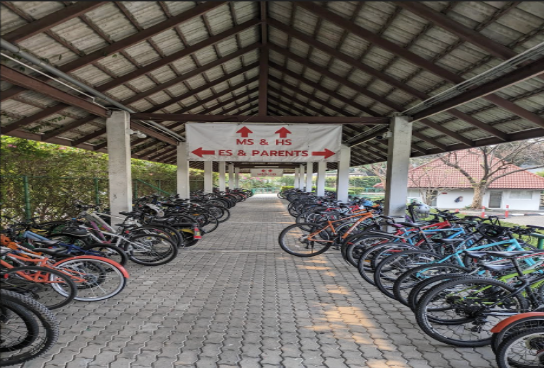
Not when it comes to bikes and cars. According to the Outdoor Recreation Economy, biking tourism contributes $83 billion annually to the U.S. alone. If bicycles substituted motorized vehicles, the annual GDP would increase by 1.6% just in India. The Bureau of Economic Analysis estimates that the $734 billion outdoor recreation economy is greater than petroleum, coal, computer, and electronic products. This demonstrates that bikes compete with major car resources and technology advancement industries. Cycling or electric biking more often could minimize carbon dioxide (CO2) emissions from motorized vehicles by up to 10% by 2050, saving over $24 trillion across the world. In addition, cycling-friendly cities benefit local businesses and improve property value along traffic-calmed roads.
Although bicycling surpasses major non-renewable energy industries, reduces the CO2 balance and global warming impact, therefore improving public health, it also creates “hard economic values” and 848,000 jobs through bicycle retail, industry, infrastructure, tourism, and services globally.
Hopefully, a growing number of students will join ISB’s mission to make this sustainable prophecy a reality like Cody Reichert does. Cheaper transportation, environmentally friendly, brighter perspectives and exercise, stabilizing the economy, and growing jobs benefits everybody from the smallest children to the eldest adults to stay safe and lead a prosperous life.

